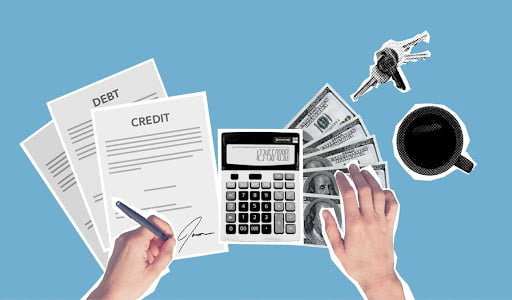In the financial journey of many, debt consolidation appears like a beacon of hope on a foggy night. This strategy has drawn the attention of 38% of individuals grappling with credit card debt, offering a semblance of order in the chaos of multiple debts. However, the decision to consolidate debt demands a deeper understanding, akin to navigating through mist-laden waters with a cautious eye. This article aims to unravel the intricacies of debt consolidation, guiding you to a decision that best suits your financial landscape.

Understanding the Terrain: What is Debt Consolidation?
The Role of Debt Consolidation Organizations
Debt consolidation organizations act as navigators in the treacherous sea of debts. They offer to combine multiple debts into a single loan, ideally with a lower interest rate and a more manageable payment schedule. Think of it as consolidating several winding paths into a single, straight road, making the journey to debt freedom less daunting.
The Lighthouse: Benefits of Debt Consolidation
Simplifying Your Financial Map
One of the most compelling benefits of debt consolidation is the simplification it brings to your finances. Managing multiple debts, each with its own interest rate and due date, can be as challenging as navigating a ship through a storm. Consolidation brings calm, aligning all debts under one umbrella, which can lead to fewer missed payments and a clearer understanding of your financial obligations.
Potential for Lower Interest Rates
Another potential advantage is the opportunity to lower your overall interest rate. If you can secure a consolidation loan with a lower rate than your current debts, you’re essentially reducing the cost of your debt, akin to lightening the load on a burdened vessel.
The Foghorn: Risks and Considerations
The Potential for Higher Overall Costs
Debt consolidation, while offering immediate relief, may sometimes lead to higher overall costs. This can happen if the consolidation loan extends the repayment period significantly, akin to elongating a journey, leading to more interest paid over time. It’s crucial to calculate the total cost of the loan, considering both the interest rate and the loan term.
Impact on Credit Scores
Initially, debt consolidation can cause a dip in your credit score, much like a ship temporarily listing as it adjusts course. This is due to credit inquiries and the opening of a new credit account. However, over time, with consistent payments, your credit score can recover and even improve.
Navigating the Decision: Is It Right for You?
Assessing Your Financial Ship
Deciding if debt consolidation is a good idea requires a thorough assessment of your financial situation. It’s suitable for those who can secure a lower interest rate and are committed to avoiding further debt. It’s less about the act of consolidation and more about the discipline in financial management post-consolidation.
Charting the Course: Moving Forward with Debt Consolidation
If you decide that debt consolidation is the right choice, the next step is to chart your course carefully. Research different debt consolidation organizations, compare interest rates, terms, and fees, and ensure you have a solid plan to avoid accumulating new debt.
In Conclusion: Finding Your Bearing
In conclusion, debt consolidation can be a powerful tool in your financial arsenal, offering a streamlined path to debt freedom. However, it requires careful consideration of the benefits and risks, an understanding of your own financial habits, and a clear plan for the future. Like a well-navigated ship reaching its destination, successful debt consolidation leads to a port of financial stability and peace of mind.



